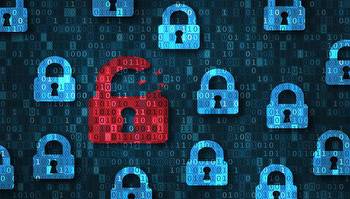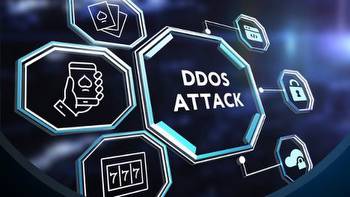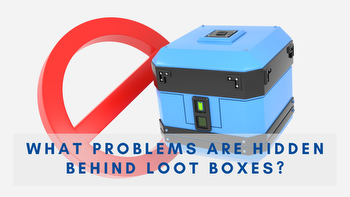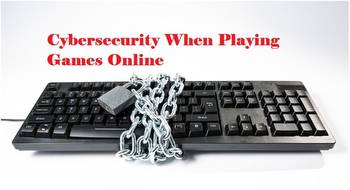What Are The Risks of Online Gaming?

Over 2.5 billion people regularly enjoy online games, with 66% in the US admitting to playing video games for at least an hour a week.
US gamers under 18 make up over 20%, a concern to parents who may feel helpless to defend their kids from the dangers lurking online.
In this article, I’ll discuss 4 of the biggest technological and social risks of online gaming (not to be confused with online gambling), and give you some of my best tips to minimize them.
Online Gaming Is Everywhere
Stats indicate there are between 16 and 29 million players online at any one time. Gaming online is a different beast from single-player or offline gaming, and comes with both its own appeal and risk.
On the one hand, you get to compete in real-time, build friendships, and interact with people you’d never otherwise meet. Gaming is not just about socializing — most gamers claim they get joy out of gaming, and that video games provide them with mental stimulation and something to do on the train.
On the other hand, playing with complete strangers may expose you to real dangers.
4 Major Online Gaming Risks
It’s wise to know about the risks that come with online gaming before you decide how and when to let your children play, or even whether to play yourself.
Some players may have ulterior motives, and others can be incredibly toxic. Then you also face the risk of overspending, both in time and money, or finding yourself unable to stop gaming – even when you want to.
Here are the 4 major risk categories to look out for:
Game and stay safe with PIA VPN. Prevent your personal information and real identity from being exposed online! PIA VPN stops malicious gamers who want to steal your info or sabotage your gaming experience.
Cybercriminals Leverage Online Games
Cybercriminals are always on the lookout for potential targets, and what better place to phish for information than an online multiplayer game? They can connect with users from all over the globe and attempt to scam people that don’t know their true identity.
Cybercriminals use online gaming to connect with potential victims in an attempt to:
- Steal personal information for identity fraud or account theft.
- Find personal information to use for cyberbullying.
- Target specific players with DDoS attacks, viruses, malware or ransomware.
- Hijack connections and use them to download files for themselves.
Don’t be an easy target! Play it safe by adopting some basic cybersecurity habits.
How to Protect Yourself While Gaming Online
Taking certain precautions will create a safer gaming environment. You may chalk some of these up to common sense, but you’d be surprised how many people forget them.
Implementing all of these measures will go a long way to ensuring your safety during online gaming.
Online Gaming Addiction
Research shows that children from the ages of 8 to 18 are online for longer periods than ever before. About 10% of US online gamers have admitted to addictive tendencies. Although it’s way more prominent in men, online gaming addiction knows no gender.
You may find yourself grinding for hours at a time, which is fine if it doesn’t take time away from other aspects of your life. But if online gaming has become your single focus, it could result in ruined sleep schedules, lost relationships, and poor performance at work or school.
Nifty marketing strategies, powerful devices, and an abundance of exciting new titles make it hard to resist online gaming. Whether you’re at home or anywhere else, gaming is an ever-present temptation.
But does the risk of addiction mean you have to stop gaming entirely? Not necessarily, but you do have to be smart about how much time (and money) you spend on it.
How to Prevent Online Gaming Addiction
The easiest way to avoid an online gaming addiction is to set boundaries early on. Here are a few things you can do to create balance and avoid becoming addicted.
- Set limits. Decide in advance how long you will allow yourself or your kids to spend online. This will help you avoid slipping into addiction and restore some balance to your schedule.
- Find a new hobby. Find something you like to do that’s healthier for you. Imagine if you took all of the hours you’ve put into gaming and spent them reading or learning a new skill instead! Just 100 hours of learning how to code, video edit, write, or craft something will change your life.
- Spend more time in the real world. Many gamers rely on online gaming for social interaction and forget to pursue it in real life. Spend more time with your real friends and family – build long-lasting, meaningful relationships.
As long as you pursue a variety of interests and don’t let online gaming cut into your other responsibilities, you can continue to play online without risking addiction.
PSA: If it feels like you (or somebody close to you) may be addicted to online gaming, please seek professional help. Trying to handle addiction on your own is a struggle. Please note that this article is not meant to replace the opinion of a certified professional in any way.
Harassment or Exposure to Adult Content in Online Games
Online gaming can expose your kids to cyberbullying and inappropriate content. As a parent, you have little control over who your children interact with online.
If you allow your young ones to play Mature-rated games they’re highly likely to be exposed to mature themes and inappropriate content. These games attract older players who don’t take too kindly to “squeakers”. Verbal assaults, sexually explicit conversations, and the theft of personal information are all possibilities.
Even games rated E (for Everyone) have their risks. Offenders may deliberately seek out a game that appeals to younger children to get close to their victims.
How to Prevent Harassment and Incidental Exposure Online
Other players could be bullying your children online without you even knowing it. You can’t monitor the in-game chat, and although you can report players, it won’t reverse incidental exposure to inappropriate content.
You can, however, start with these tips to make online gaming a much safer space for everyone.
- Supervise your family’s online gaming. You’ll want to be the one to decide which games are appropriate for your kids, and what the rules of play are. Check in now and then to see if your kids are following them, and who they’re playing with. Talk about the risks and try to find out if your kids are experiencing any of them.
- Check the ESRB rating. Take the ESRB rating of games seriously and learn which games are appropriate for children. Mature-rated titles are not suitable for children and may put them in bad company.
- Enable parental controls. Whether it’s on a computer or game console, you should be able to enable some parental safety settings. For example, on PlayStation, you can use the “Family Timer” to stop play after a certain length of time. You can also prevent unfriended players (aka “randoms”) from messaging your children.
- Use a VPN. VPNs can hide your true identity and location from prying parties and prevent doxxing or DDoS attacks; they are the easiest way to secure your network.
Online Gaming Can Lead to Overspending
The video game market is now worth well over $60 billion, with online and in-game purchases accounting for over $50 billion of that.Game manufacturers work hard to make in-game purchases attractive and even essential.
Unsupervised children can make online game purchases without your approval if you leave your credit card info saved, which can result in quite a nasty surprise at the end of the month.
Reckless spending can be an issue for adults as well. If you’re addicted to online gaming, odds are you’ll be willing to spend money you don’t have for a boost.
Gaming companies understand this logic and constantly nerf (downgrade) or buff (upgrade) guns, characters, and paid in-game items to drive purchases.
How to Prevent Overspending
Can a VPN Protect You While Online Gaming?
VPNs allow you to change your IP address and remain anonymous online. Since it’s not your real IP, nobody will know your true identity and your activity remains hidden.
As online gaming becomes ever more popular, playing it safe should be a top priority. This is especially true if you have kids, as malicious players could be lurking on any server.
Whether to protect your account logins or to hide your personal info from hackers and trolls, a VPN is essential for safer online gaming.
Here are 4 reasons to connect to a VPN while online gaming:
- VPNs Keep You Anonymous Online
Not all the players are in it for fun, though. Some may be out to use your private information for criminal ends. Your best option is to remain anonymous online with a VPN.
That way, you will never expose your real name, location, IP address, or anything else that could be used by strangers online.
- VPNs Protect You from DDoS Attacks
DDoS attacks are used to disrupt your connection and ruin your games. If you’re demolishing somebody in a competitive online match, but they can’t stand losing, they may go as far as sending a DDoS attack your way.
DDoS attacks require your IP address, and a VPN keeps your true IP address hidden. As such, attackers will find it nearly impossible to target you.
- VPNs Enable Safe Access to Public Wi-Fi
We all know public Wi-Fi is risky, but sometimes you have no other choice. Whether you’re participating in a gaming tournament, or on vacation, remember that using public Wi-Fi can expose your personal information to other users on the network.
With so many unsuspecting victims on the network at once, public gaming tournaments present the perfect opportunity for criminals to phish for information. PIA VPN includes unbreakable data encryption to .
- VPNs Help Prevent Bandwidth Throttling
Bandwidth throttling is when ISPs limit your access to the internet, especially if you’ve been busy with high-bandwidth activities like gaming.
If your ISP has bandwidth limits in place, it’s only a matter of time before your gaming marathon is cut short. Thankfully, a VPN could be all you need to avoid it entirely.
Your ISP can’t cap you based on your activity if they can’t see it. Encrypt your data with a VPN to make it nearly impossible for your ISP to implement activity-based bandwidth caps. Some ISPs will throttle VPN-specific traffic to get around this, but PIA uses obfuscation to keep your VPN usage hidden!
How to Use PIA VPN for Online Gaming Protection
Step 2. Fire up the app, select the server of your choice, and click Connect.
Step 3. Enjoy your favorite games with the protection of anonymity!
You can also use a VPN router to protect your entire household, including your game consoles. With a VPN router, you can stay safe while on your PlayStation, Xbox, and even your Nintendo Switch.
Online Gaming Made Safe & Simple with PIA
Despite the many risks involved, you can stay safe while online gaming if you take the proper precautions. If you can game in moderation and keep your VPN connected at all times, you’re golden!
Private Internet Access has the advanced privacy features you need to stay protected from online gaming risks like cyberbullying and DDoS attacks. That’s because PIA VPN prevents other gamers from accessing your personal information and allows you to enjoy gaming online with absolute privacy.
What’s more, it can even help you bypass IP bans to keep you in the mix no matter what!
Get PIA todayand stay safe while you grind away at your favorite games online.
Avoid Online Gaming Risks & Focus on the Fun
Whether it’s online gaming addiction, overspending, or the potential of cyberbullying, online gaming can be harmful to you and your children if you aren’t careful.
Of course, that doesn’t mean that online gaming is entirely off the cards. As long as you’re willing to take precautions and create the safest environment possible, you’ll be able to let your family play online securely.
Have your kids stick to playing with their friends, set limits, and sort out your parental controls. Finally, use a VPNto. That way, nobody will know who you or your kids are unless you want them to – and that alone makes online gamingmuch safer.
FAQ
What are the risks of online gaming?
Online gaming can lead to several unpleasant outcomes, including cyberbullying and harassment, overspending, gaming addiction, exposure to cybercriminals, and more.
The world’s #1 VPN, PIA is one of the simplest ways to make online gaming safer for you and your family.
Do kids get cyberbullied in online games?
Yes, cyberbullying is a real threat to kids playing games online as they’re competing with others in an often excitable and aggressive environment. PIA keeps potential attackers and bullies at bay by shielding your personal information with military-grade data encryption.
Online bullies will have a much tougher time doxxing or stalking you with a VPN enabled.
What are the advantages of online gaming?
Online gaming is great for mental stimulation, connecting with friends abroad, or relaxing after a tough day at work. That said, there are significant risks involved, including online harassment and cybercrime.
Stay connected to the fastest VPN on the planet to reduce your risk without compromising your ping!
What are the best safety tips for online gaming?
Be realistic about what you can afford in terms of time and money and set limits to your online gaming habits. Avoid interacting with mischievous players and trolls; report and block players as soon as they become toxic.
Consider using PIA on your router to ramp up privacy and security on all your devices.
PIA offers open-source security protocols and can protect your entire network from prying eyes. Use PIA VPN to stay anonymous and avoid shady gamers – you can try it out risk-free with our 30-day money-back guarantee.





































